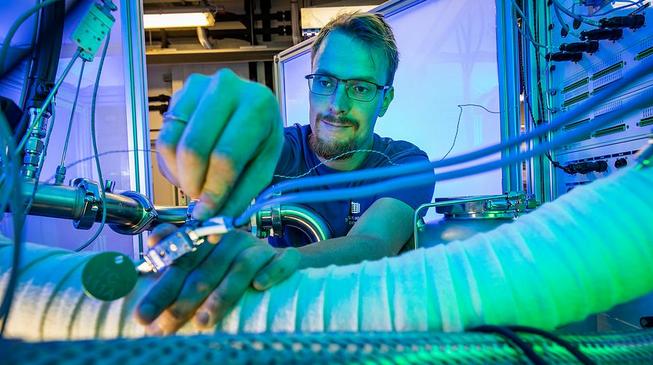
Continental inaugurates new fuel cell laboratory with German university
Continental AG is expanding its fuel cell technology sector, opening the newly established Fuel Cell Laboratory for Fuel Cell Technology with the Chemnitz University of Technology Professorship of Advanced Powertrains (ALF).
With the installation of a large hydrogen tank (H2 Tank) in February 2019 at a laboratory belonging to ALF, a central requirement for the expansion to more extensive measuring capabilities was put into place.
ALF, headed by Prof. Dr. Thomas von Unwerth, has an excellent reputation in the field of research and development of fuel cells.
By working together with Continental AG as the largest industrial partner in the HZwo Cluster of Innovation, the new Fuel Cell Materials Laboratory on the Chemnitz University of Technology campus is now one of the most modern H2 laboratories in Germany.
“Hydrogen-based fuel cells have the potential to become an important part of the future of mobility. Therefore, we are intensifying our research and development efforts in this field,“ says Stephan Rebhan, Head of Technology and Innovation at Continental AG‘s Powertrain Division.
“The special technical equipment at the laboratory is unparalleled in the European university landscape“, says Prof. Dr. Thomas von Unwerth.
“The heart of the new system is a high-performance test bench that accommodates permanent testing of powertrain performance up to 150 kilowatts.
“In the future, the test bench can also be converted up to 300kW. This lays the foundation for the development of next-generation fuel cells and fuel cell systems at Chemnitz University of Technology.“
Geared towards a networking-based outlook, third-party companies can also use the laboratory.
Electric drivetrains with fuel cells are expected to be an important option, especially for larger vehicles and long-range commercial vehicles.
In order to test the performance of the fuel cell under different conditions, the new test bench is able to simulate changing environmental conditions and workloads, something that is essential for assessing the performance of a hydrogen fuel cell.
The tests are carried out at different temperatures, pressure conditions and humidities, and additionally under simulation of different load requirements, such as weight or mountainous terrain.
Initial measurement tasks having to do with research projects involving innovative materials for fuel cells are already under way, and are creating the basis for mass production of particularly efficient and economical components and elements.
Powertrain fuel cells are still struggling to deal with high costs. Therefore, one of the first two Continental projects in the fuel cell laboratory is dedicated to the development of new so-called “bipolar plates“.
These metallic plates are a central component of the fuel cell stack. They disperse gases and dissipate the current generated by their reaction.
Thomas von Unwerth sees the cooperation as a win-win for both sides: “Continental, as the largest industrial partner in the “HZwo” Cluster of Innovation network, brings extensive knowledge of vehicle use, control technology and components for fuel cells.
“Combined with our expertise, this makes for an ideal foundation for the development of efficient fuel cell solutions and the development of further economic industrialisation.“


